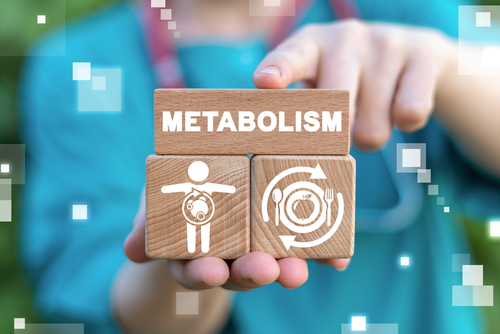The ebb and flow of life bring with it transformations we often feel but can’t always see. Among these hidden changes is our body’s metabolic rate. It’s a common tale: as the years go by, our once blazing metabolism once reminiscent of a roaring wildfire starts to resemble more of a flickering flame, with many feeling it dwindling to a mere campfire as the years accumulate. But what if there were ways to prevent or, at the very least, delay this decline?
Just because aging is a natural process doesn’t mean our metabolic fire has to be snuffed out entirely. With the right strategies, a conscious approach, and an informed lifestyle, our functional medicine doctors in Los Angeles can help you keep those flames burning brightly even in advanced age. Let’s take a quick look at top strategies to prevent your metabolism from slowing down.
How do I stop my metabolism from slowing?
Here are a few steps you can take:
Prioritize strength training
Why it matters: Muscle is more metabolically active than fat, making it a prime factor in calorie burning. As we age, preserving and building muscle becomes essential for maintaining a robust metabolism.
What to do: Incorporate strength training exercises into your routine at least two to three times a week. Focus on compound movements like squats, deadlifts, and push-ups that work multiple muscle groups.
Eat enough protein
Why it matters: Consuming protein can give your metabolism a slight boost because it takes more energy to digest compared to fats and carbs. Moreover, protein aids in muscle repair and growth, especially after workouts.
What to do: Incorporate protein-rich foods like lean meats, eggs, tofu, beans, and legumes into your daily diet.
Stay hydrated
Why it matters: Water is crucial for nearly every metabolic process in your body. Even mild dehydration can slow down calorie burning. Keeping hydrated means ensuring that bodily processes occur optimally.
What to do: Aim to drink at least 8 glasses of water a day, and more if you’re active or live in a hot climate.
Get quality sleep
Why it matters: Lack of sleep can disrupt the balance of hormones that regulate appetite and metabolism. Restful sleep not only rejuvenates the body but also ensures metabolic pathways function efficiently.
What to do: Aim for 7-9 hours of quality sleep per night. Create a sleep-friendly environment by keeping your room dark, quiet, and cool.
Manage stress
Why it matters: Chronic stress can lead to hormonal imbalances that slow down your metabolism. Over time, these imbalances can compound, leading to weight gain and energy depletion.
What to do: Incorporate stress-reducing activities into your routine, such as meditation, yoga, or even simple deep-breathing exercises.
Don’t severely restrict calories
Why it matters: Dramatically cutting calorie intake can decrease your metabolic rate and lead your body to enter ‘starvation mode’ to better conserve energy. This can lead to muscle breakdown and a further reduction in metabolic speed.
What to do: Instead of crash diets, adopt a balanced and sustainable eating pattern that ensures you’re getting the nutrients you need.
Stay active

What to do: Incorporate regular movement into your day. Take the stairs, go for short walks, or consider using a standing desk.
Drink green tea
Why it matters: Some studies suggest that green tea can boost metabolism, while also providing antioxidant benefits. Incorporating it into your diet can offer both immediate metabolic advantages and long-term health benefits.
What to do: Consider drinking a cup of green tea daily. Opt for freshly brewed over bottled to get the maximum benefits.
Who are the leading functional medicine doctors in Los Angeles?
While the passage of time is inevitable, a slowing metabolism doesn’t have to be your destiny. Remember, every choice counts, and it’s the cumulative effect of these decisions that truly makes a difference.
To learn more about the interaction between metabolism and aging, the connection between inflammation and body fat, and the importance of intermittent fasting for optimal health, feel free to give us a call and our knowledgeable specialist will gladly consult you via webcam or phone at 562-789-1588.
Whether you’re located in the vicinity of Downtown Los Angeles or on the outskirts of town, reach out to us today and Dr. Jamie and her attentive team will lean on their expertise and dedication to help you achieve your peak condition!

